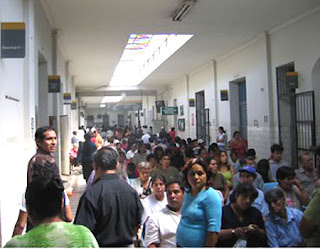Mikeoxenormous
Diamond Member
First off these people shouldn't be here. They are taking resources that aren't theirs while robbing resources from you, me and my children. Arent you for the children?When you find yourself blaming people who have less than you do in america, you're most likely being manipulated by folks with more than you. Every other advanced post industrial nation on the planet knows the answer, and have immigrants too.Get rid of 30 million illegals who abuse the hospital emergency rooms for a cold for their brats, and soon the costs would go down. Dreamers, need to be given back to their own countries along with any bleeding heart liberal who wants to keep them here..You thiink the ACA made things worse? The best thing going for it was pooling customers to negotiate the best price..Try pricing healthcare on your own through and insurance company, it's much higher...
Why is it high? Hey doctors don't work for chicken feed no more..


